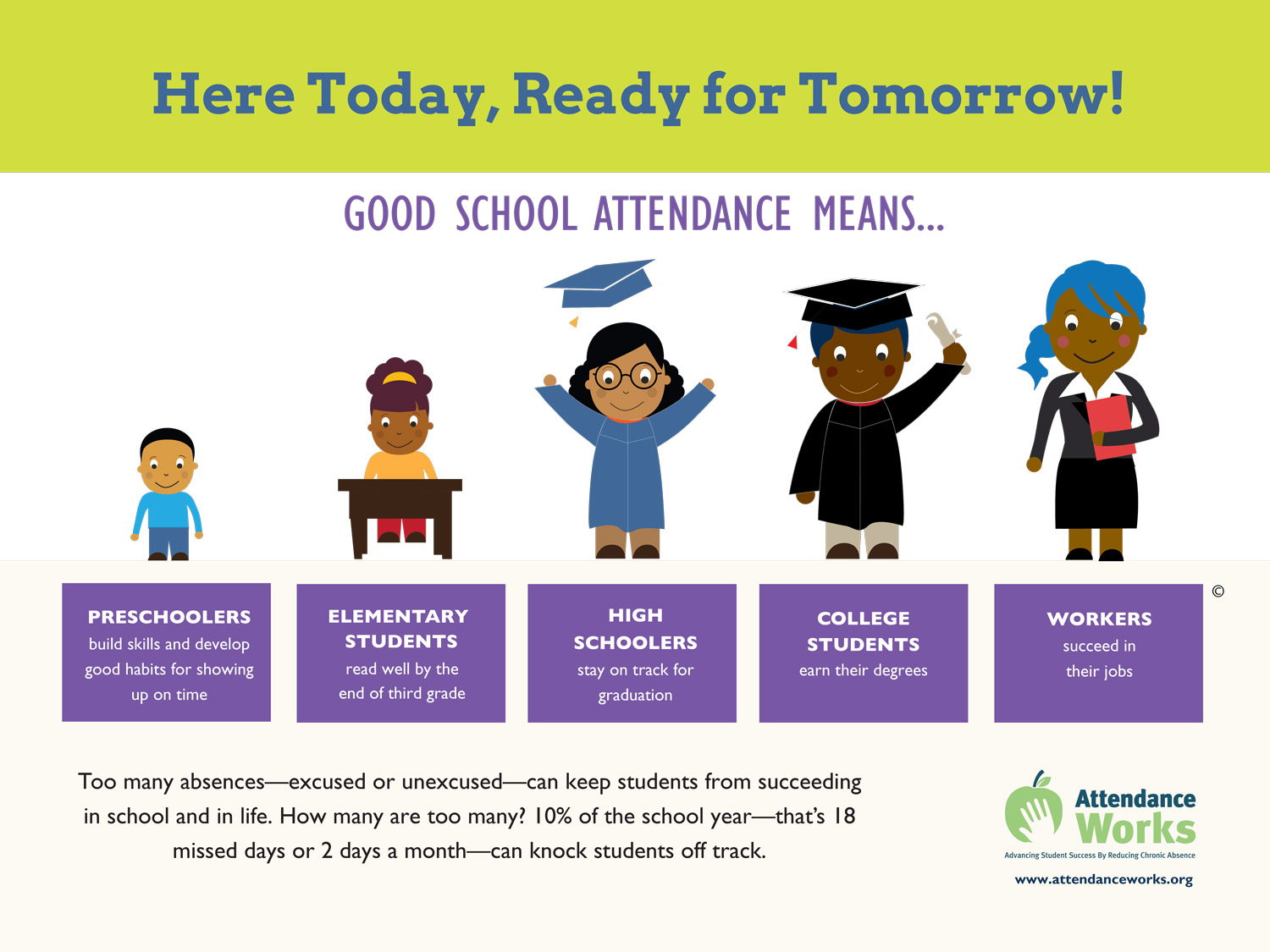Attendance
Attendance is vitally important to a student's success in school. Absent students can fall behind in their schoolwork and miss valuable learning opportunities.
Quick Links
- From the school nurses: When To Keep a Child Home From School / Guía sobre cuando guardar a estudiantes en casa
Types of absences
Excused absences
Under state law, parents/guardians can excuse a student from school for up to 10 days per school year with advance notice (Wisconsin Statute 118.15).
- School functions (field trips, sporting events, etc.) do not count toward the 10 days.
- Absences due to severe illness or medical appointments also do not count toward the 10 days, as long as you provide documentation from the licensed health-care provider regarding the specific days/times missed. Documentation can take the form of a doctor's note, After-Visit Summary, etc.
Unexcused absences
All other absences, including those with parent/guardian permission after the 10 days, are considered unexcused. Under state law, a student with unexcused absences for part or all of 5 or more days during a semester is considered habitually truant.
Absences protocol
For students to be successful in school, we need them to be here. Accordingly, we are taking a proactive approach to attendance. Here's what you can expect:
- After 5 days excused in a school year: Informational letter noting that the student has used 5 of the 10 excused absences.
- After 10 days excused in a school year: Notice that the 10 excused absences have been used up and any future absences will be considered unexcused, unless medical documentation is provided.
- After 2 unexcused absences in a semester: First notice; phone call to parent/guardian; develop Truancy Contract
- After 5 unexcused absences in a semester: Second notice - habitual truancy; home visit; court referral and potential fine
We're here to help
If you find that your family is struggling with attendance for any reason, please reach out so we can work on solutions with you:
- PHS: Associate Principal Andy Novak, anovak@plymouth.k12.wi.us, 920-893-6911
- Riverview: Assistant Principal Matt Bertram, mbertram@plymouth.k12.wi.us, 920-892-4353
- Fairview: Principal Nick O'Malley, nomalley@plymouth.k12.wi.us, 920-892-2621
- Horizon: Principal Matt Mueller, mmueller@plymouth.k12.wi.us, 920-892-2225
- Parkview: Principal Todd Hunt, thunt@plymouth.k12.wi.us, 920-892-4076

Here Today, Ready for Tomorrow!
Good school attendance means:PRESCHOOLERS build skills and develop good habits for showing up on time
ELEMENTARY STUDENTS read well by the end of third grade
HIGH SCHOOLERS stay on track for graduation
COLLEGE STUDENTS earn their degrees
WORKERS succeed in their jobs
Too many absences—excused or unexcused—can keep students from succeeding in school and in life. How many are too many? 10% of the school year—that’s 18 missed days or 2 days a month—can knock students off track.






